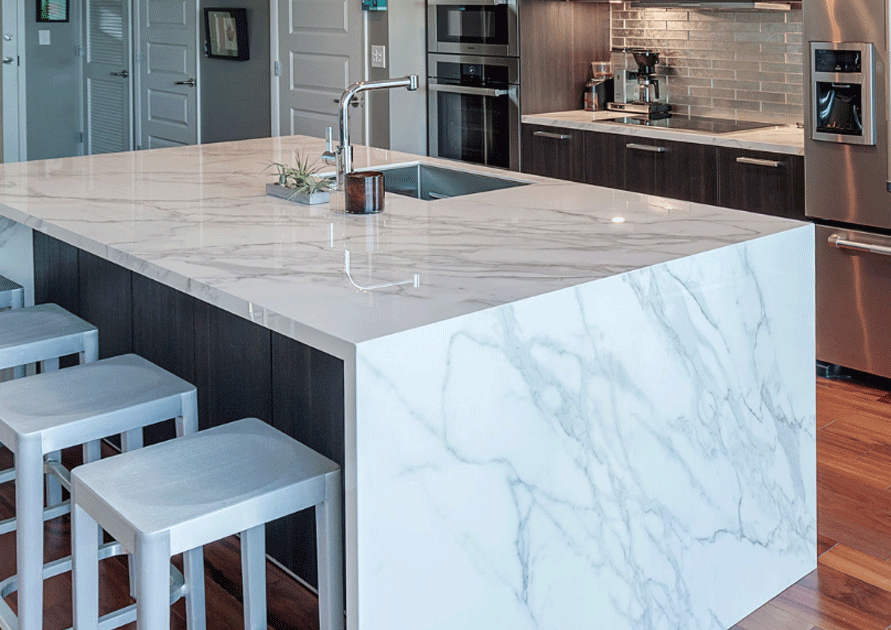Porcelain Countertops Pros and Cons – 2022

Neolith Calacatta Countertop with Waterfall Edge
Are Porcelain Countertops right for your home?
WHAT ARE PORCELAIN COUNTERTOPS?
Porcelain kitchen countertops are a man-made product made from clay. The clay called ‘China clay’ is mixed with other minerals to create the strength and durability of porcelain.
The combination of these materials is put into a kiln and fired at extremely high temperatures. This creates a dense, durable material resistant to stains, heat, UV rays, scratches, chips, and cracks.
During the manufacturing of porcelain countertops, pigmented glazes are added to create different patterns and colors on the porcelain slab. Porcelain can be either glazed or unglazed. However, glazing increases the durability of the slab by making it shiny and less porous (which means there is a decreased risk of staining).
DRAWBACK OF PORCELAIN COUNTERS
One downside to glazed porcelain is that the printing is only on the surface. This means that if it chips, you can see a different color on the inside. On the other hand, unglazed porcelain has the same color on both the surface and the interior of the slab.
PORCELAIN COLORS AND PATTERNS
Just like other countertops, porcelain countertops come in assorted colors and designs that look like natural materials, like marble, wood grain, or concrete. But remember that the pattern and color won’t be on the inside of the countertop since it’s applied only to the top surface during glazing.
PORCELAIN COUNTERTOP EDGES
Porcelain countertops are unique because of the printing on the surface. The patterns and colors are only on the top, so you can’t cut a rounded edge. Most people choose a simple square edge to keep the pattern and color.
PORCELAIN COUNTERTOP DURABILITY
Although porcelain slabs are durable, they are also lightweight and thin. The typical thickness for porcelain countertops is ¼ inch (6 mm) or ½ inch (12 mm). Porcelain slabs can also be made in large sizes, which is useful for covering an entire island without seams.
Once installed, however, porcelain is extremely hard and durable. Cracking is only a big issue during the handling, moving, and cutting of exceptionally large slabs.

